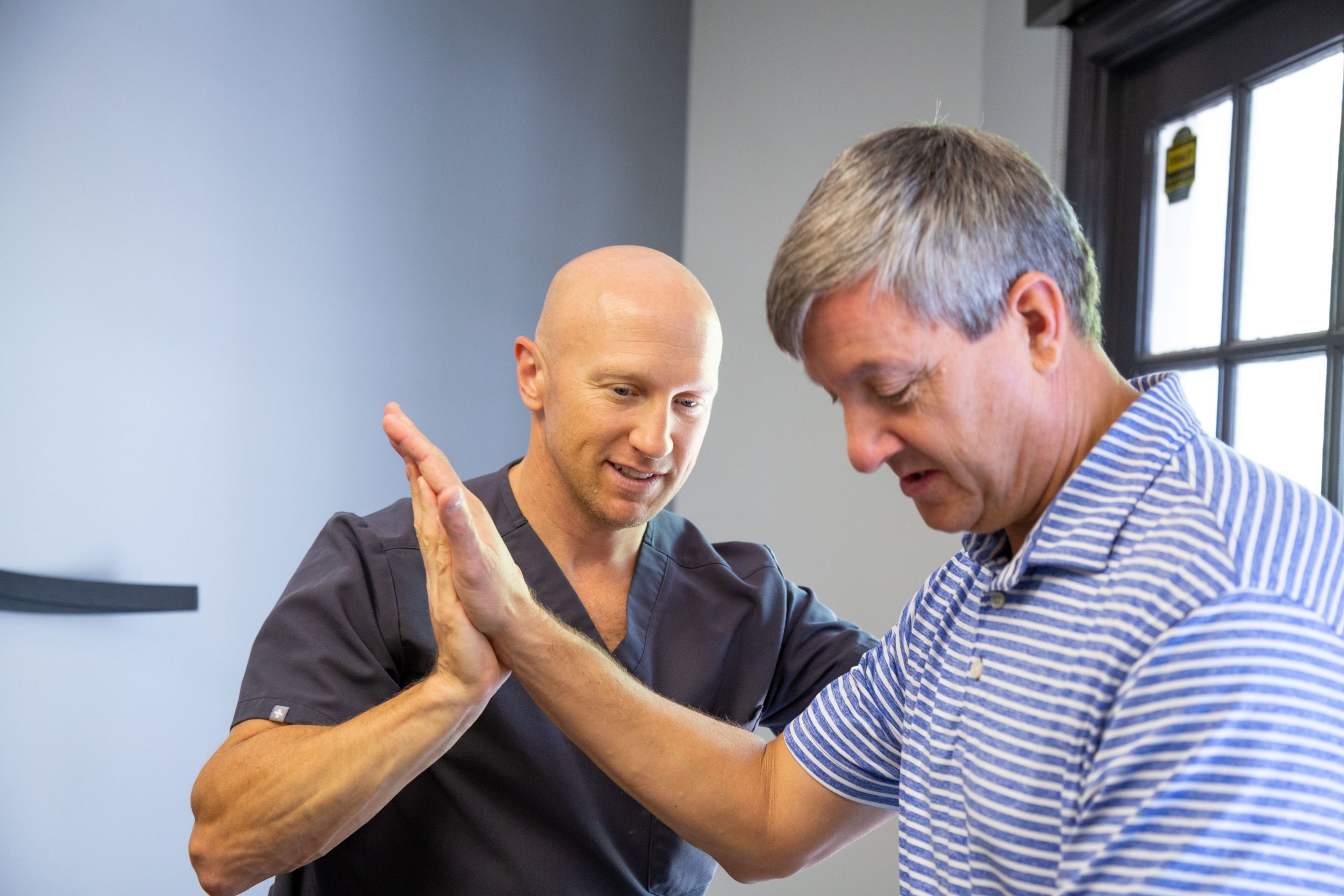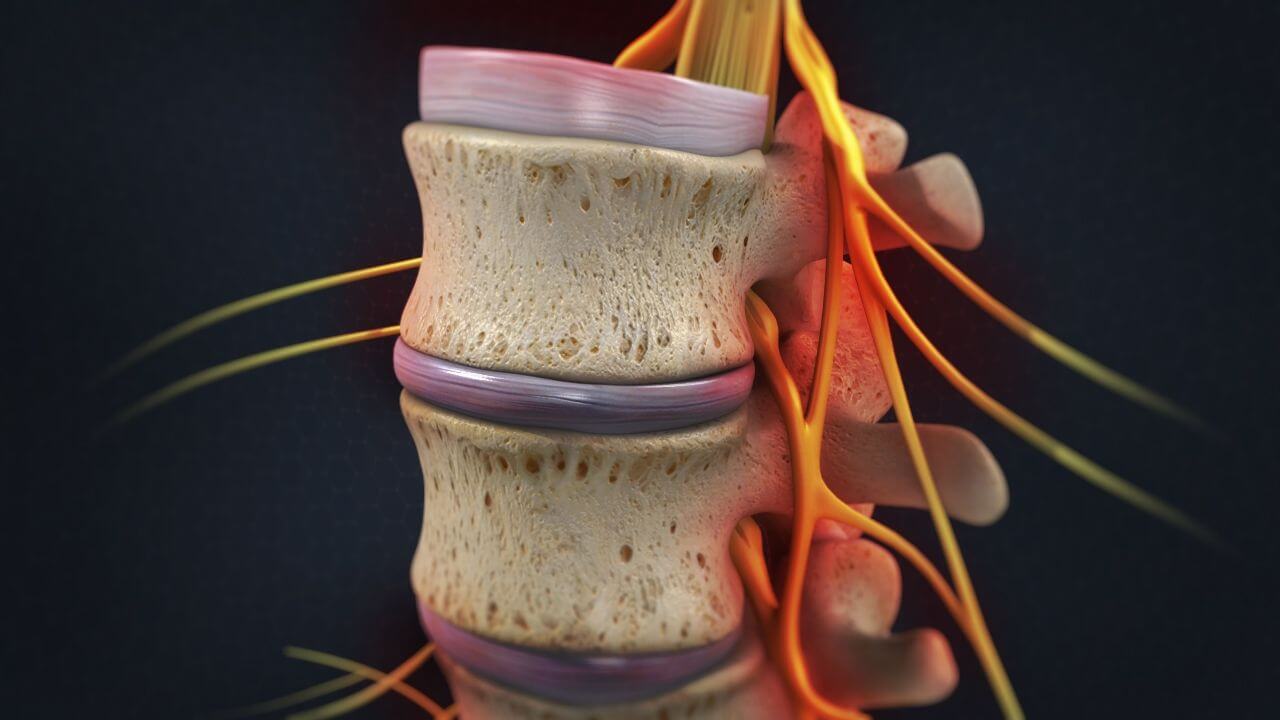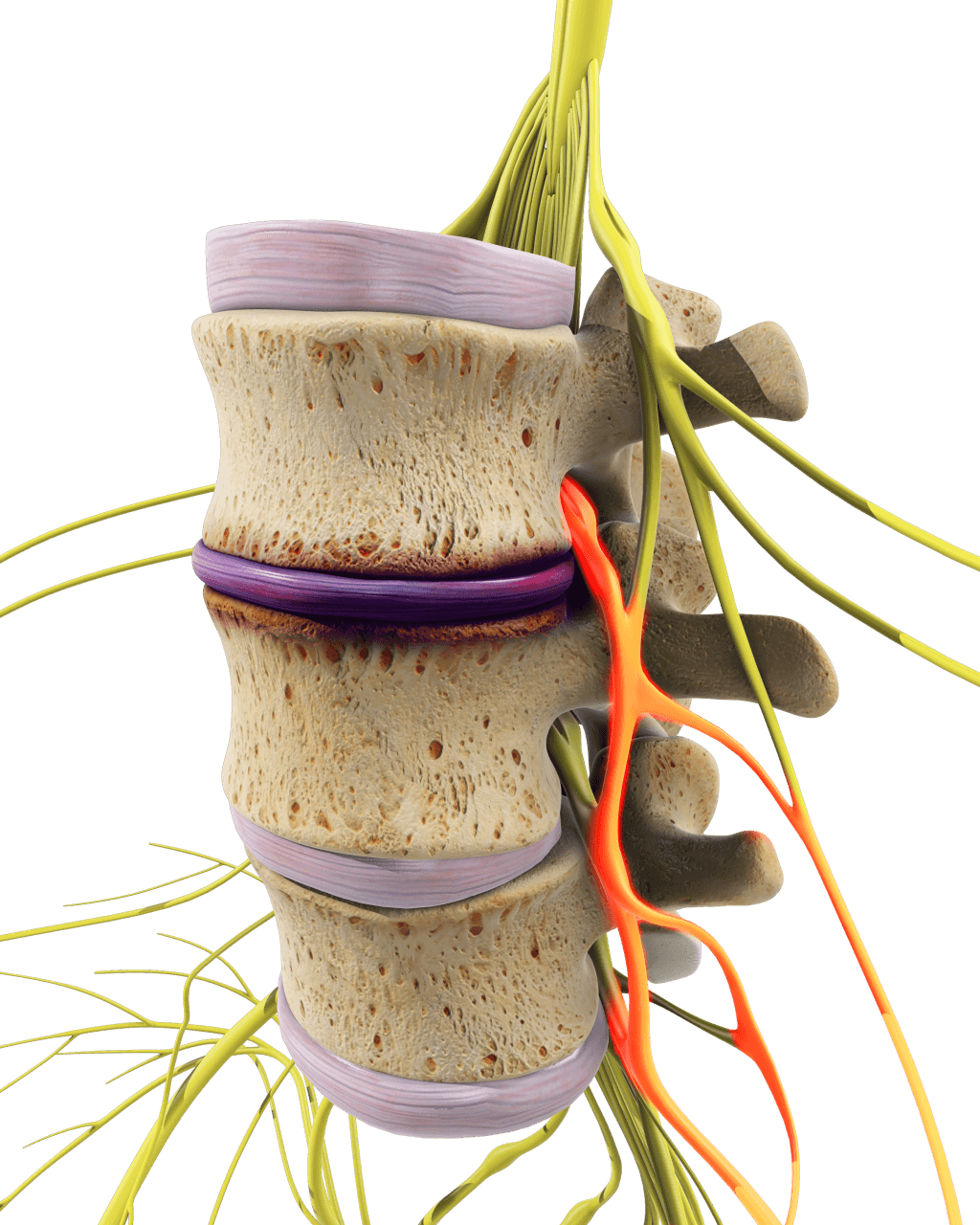The gel-like discs between your vertebrae can weaken or crack and develop tears. When the inner part of the disc pushes out and becomes a bulging or herniated disc, this can put pressure on the nerves in the spine.
Your spinal cord is filled with nerves that provide communication pathways between the body and brain. When a nerve becomes pinched or impinged, an inflammatory process begins that can lead to severe pain and impact your quality of life. Also called radiculopathy, pinched nerves can occur in any part of the spine but are most common in the neck and lower back.
At Desert Institute for Spine Care, our orthopedic doctors offer advanced treatment options for pinched nerve in the spine. We are leaders in compassionate, minimally invasive care for cervical and lumbar radiculopathy, providing patients with relief from their painful symptoms.


Pinched nerve, as it’s commonly called, is not an official medical term. It describes damage or injury that can occur to a nerve or set of nerves. Radiculopathy is caused most often by a compressed, constricted or stretched nerve in the spine. Sciatica is the lay term used to describe this referred leg pain that originates in the lumbar spine. Pinched nerves are most common in the lower back, called lumbar radiculopathy, or the neck, called cervical radiculopathy.
The spinal cord is an essential communication channel, continually relaying messages between the brain and body. It travels through the spinal column with exiting nerves branching out through openings in the vertebrae to the rest of the body.
Pinched nerves can occur when surrounding bones, intervertebral discs or other tissue puts pressure on these nerves.
When a nerve becomes pinched, pain or numbness often serves as a warning signal. While the damage caused by a pinched nerve may be minor, you should never ignore these symptoms. If not treated, pinched nerves can lead to short-term or irreversible damage, such as loss of sensation or muscle weakness.
The nerves that run through your spine are a delicate network, controlling and coordinating a number of bodily functions taking place throughout the body. Increased pressure on these nerves can be caused by a wide variety of issues, from age-related degeneration to poor posture.
While anyone can experience a pinched nerve, adults 40 to 50 years of age are most susceptible. Lifestyle risk factors include repetitive heavy lifting, smoking and certain activities like playing golf.

The gel-like discs between your vertebrae can weaken or crack and develop tears. When the inner part of the disc pushes out and becomes a bulging or herniated disc, this can put pressure on the nerves in the spine.
These bony projections sometimes develop along a bone’s edge and compress or pinch the nerves traveling through spinal openings.
Nerves are especially vulnerable in the spinal canal as they pass through narrow openings called foramen. If these areas become abnormally narrowed, this can cause radiculopathy.
This condition can cause swelling and inflammation, putting pressure on nerve roots.
Damage from an injury or accident to the spine’s structures can lead to severe inflammation, creating pressure on the nerves.
Depending on the underlying cause and whether you are experiencing cervical or lumbar radiculopathy, your symptoms may vary. The most common sign of a pinched nerve is a tingling sensation or slight numbness.
Other symptoms may include:


If you suspect that you may have cervical or lumbar radiculopathy, the spine care experts at DISC can provide you with an accurate diagnosis as well as a wide range of pain treatment options. A pinched nerve can be associated with a number of underlying conditions. Our first aim is to provide a precise diagnosis using our proprietary diagnostic techniques.
Once we understand your pain journey more fully, we can create a personalized treatment plan at one of our spine centers in the Phoenix area. This could include conservative care, such as medication or therapeutic pain injections. However, for severe pain that persists, we may recommend a surgical solution. The orthopedic surgeons at DISC specialize in minimally invasive surgical techniques as well as more traditional spine surgeries.
At DISC we also treat pinched nerves routinely with the least invasive techniques called Endoscopic Spine Surgery. These techniques were pioneered and developed at DISC and patients from around the world have traveled to us for our experience and success rates.
If you are experiencing unexplained tingling, numbness or pain in your back or extremities, contact DISC right away. A pinched nerve can have potentially serious side effects, so it’s essential to meet with one of our spine care experts as soon as possible.
Our spine health blog features up-to-date spine education and expert spine tips from our spine specialists here at DISC.
1635 East Myrtle Avenue Suite 100, Phoenix, AZ 85020, USA
18700 North 64th Drive Suite 105, Glendale, AZ 85308, USA
8630 East Vía de Ventura Suite 210, Scottsdale, AZ 85258, USA
3487 South Mercy Road, Gilbert, AZ 85297, USA
1635 East Myrtle Avenue Suite 400, Phoenix, AZ 85020, USA